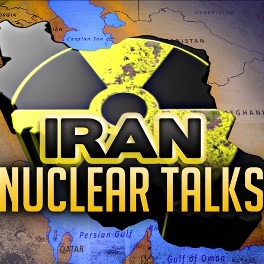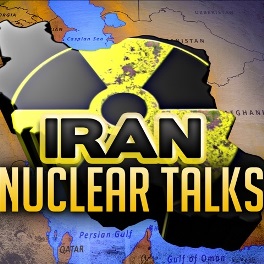
Israel

Who do these ‘anti-Iran’ Jewish groups represent
Published
9 years agoon
By
adminURIEL HEILMAN
NEW YORK
“This Iran deal threatens the mission of our Federation as we exist to assure the continuity of the Jewish people, support a secure State of Israel, care for Jews in need here and abroad and mobilise on issues of concern,” the federation said in its July 21 statement.
The accord, reached on July 14 in Vienna, places limits on Iran’s nuclear programme in exchange for sanctions relief.
Unlike in some other communities where federation leaders came out against the deal (none has come out in support), there was strong, public pushback in Los Angeles. In a column titled “Federation: Take it back”, Rob Eshman, the editor-in-chief and publisher of the LA Jewish Journal, called the federation’s action a mistake.
“The Los Angeles Federation made a wholly unnecessary but completely reparable mistake by urging its members to defeat the Iran deal,” Eshman wrote in his piece published last Sunday. “In doing so, it misrepresented the people it purports to represent, alienated a good chunk of them, and clouded, rather than clarified, the Iran deal debate.”
Federation CEO Jay Sanderson has since cancelled his planned holiday to talk to community members upset about the Federation’s decision.
“We are not a voice of the entire Jewish community. We just aren’t. Nobody is. And we don’t make political statements. But this is an extraordinary moment,” Sanderson told JTA. “Sometimes when you take positions, you do so recognising that one of the results will be a louder, more interesting communal conversation. At the very least the community is thinking and talking about this in a way it hadn’t a week ago.”
The kerfuffle in Los Angeles highlights the apparent gap on the Iran deal between American Jews as a whole and American Jewish organisations.
According to a telephone survey of American Jews sponsored by the Jewish Journal and carried out July 16 – 20 by a reputable polling firm using scientific methodology, far more American Jews support the deal than oppose it: Of the 501 Jewish respondents, about 48 per cent said they favoured the deal, compared to 28 per cent against; 25 per cent said they didn’t know.
At the same time, 54 per cent said they were not confident the deal would prevent Iran from acquiring nuclear weapons over the next decade or so, compared to 43 per cent who said they were confident.
The survey was conducted by Steven M Cohen, a research professor at the Hebrew Union College-Jewish Institute of Religion, and carried out by SSRS Omnibus, which culled Jewish respondents from the lists it has assembled from nationwide weekly telephone surveys on a variety of issues. The margin of error was 6 per cent.
By contrast, all seven Jewish federations that came out with position statements on the deal – Boston, Miami, Detroit, Dallas, Florida’s South Palm Beach, Phoenix and Los Angeles – oppose it. The federation umbrella group, the Jewish Federations of North America, has not taken a formal position.
It’s not uncommon for federations to take policy positions, but the issues usually are matters of broad consensus within their communities, such as bills that would affect the social safety net or increased US assistance for Israel.
The Conference of Presidents of Major American Jewish Organisations, an umbrella group for 51 national Jewish organisations that is meant to be the Jewish community’s voice on foreign policy, also has not taken a position on the Iran deal. Nevertheless, the organisation’s executive vice chairman, Malcolm Hoenlein, made his position on the deal clear in an interview.
“We believe it is a dangerous deal and the implications are extremely serious,” Hoenlein told JTA. “This is not some minor piece of legislation. This really goes to the core of concerns that we have been involved with for 20 years regarding Iran’s nuclear programme. The more people study the deal, the more questions people have and the more concerns are raised.”
Hoenlein said that while an “overwhelming” majority of organisations in the Presidents Conference oppose the deal, the umbrella group, which is meant to operate on the basis of consensus decision-making, isn’t yet ready to take a formal position.
“We will take a position,” he said, “but we will come to it in a way that keeps the community unified.”
In Boston, the local Jewish federation, Combined Jewish Philanthropies, was the first to publicly oppose the Iran deal after it was announced. The decision followed a unanimous vote in a conference call with board members, the federation’s president, Barry Shrage, told JTA.
“We took this to our full board, and it’s got Democrats, Republicans, liberals and conservatives. It was unanimous in opposition to the deal,” Shrage said of the 24 of 40 board members who participated in the call. “Of course, there are lots of different opinions about what we did. We don’t think we’re speaking for the whole Jewish community. We expressed the opinion of our board.”
So far, the only Jewish organisations to express public support for the deal have been those identified with the political leftwing, such as J Street and Americans for Peace Now. Meanwhile, rightwing organisations like the Zionist Organisation of America and Orthodox groups such as the Orthodox Union have come out against the agreement.
The Jewish Journal isn’t the only poll of US Jewish sentiment on the deal, but it’s the only scientific one to be carried out by a nonpartisan group. The Israel Project released its own survey on Tuesday conducted online by a Republican pollster showing slightly more Jews opposing the deal, 45 per cent, than supporting it, 40 per cent. Also on Tuesday, J Street released a poll showing US Jewish support for the deal at 60 per cent, compared to 40 per cent opposed.
Meanwhile, national surveys of Americans also show some divergence. In a telephone survey of 1 017 Americans sponsored by CNN and carried out July 22 – 25 by ORC International, 52 per cent of respondents said that Congress should reject the deal, compared to 44 per cent who said it should be approved.
By contrast, a Washington Post telephone survey conducted a few days earlier, July 16 – 19, found 56 per cent support for the deal and 37 per cent opposed. It’s not clear whether the different findings are the result of methodological differences or whether Americans are growing increasingly opposed to the deal the more they learn about it.
In Israel, a poll conducted by Israel’s Channel 10 shortly after the agreement’s announcement found 69 per cent of Israeli respondents opposed to the deal and 10 per cent in favour.
Cohen, who did the Jewish Journal survey, said the divergence between American Jewish opinion on the Iran deal and the positions of American Jewish organisations reflected how the constituencies of Jewish organisations differed from average American Jews: Jewish organisational supporters tended to be older, more traditional and more affiliated.
“We live in an elitist bubble of Jewish insiders, and we forget that the rest of the Jewish world doesn’t think like us,” Cohen said. “Jewish organisations are doing what they’re supposed to be doing: representing their membership. That makes sense.”
As for the wide difference between American and Israeli Jews, Cohen, who holds dual Israeli and American citizenship and divides his time between the two countries, chalked it up to the Israelis’ heightened sense of their own vulnerability.
“Israeli Jews have a strong sense of their vulnerabilities and their imminent destruction, given who their neighbours are,” he said. “American Jews’ neighbours aren’t trying to kill them; they’re marrying them.” (JTA)




